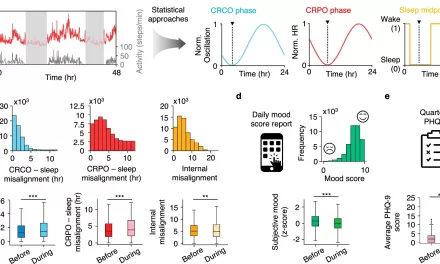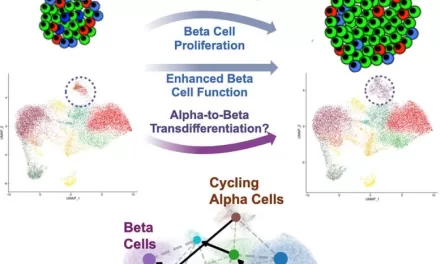St. Louis, MO – A groundbreaking study from Shriners Children’s St. Louis has unveiled a revolutionary approach to arthritis treatment that could transform the way the disease is managed. Researchers have successfully engineered stem cells to deliver arthritis medication at precise times of the day, aligning with the body’s natural circadian rhythm.
With nearly 1.5 million people in the United States affected by rheumatoid and juvenile arthritis, this innovative method—dubbed “chronotherapy”—offers the potential to reduce flare-ups, alleviate symptoms, and prevent disease progression.
Dr. Farshid Guilak, a leading researcher in regenerative medicine, recently published findings in Nature Communications on this novel technique. His team combined synthetic biology with tissue engineering to develop gene circuits known as “chronogenetics.” These circuits, programmed into stem cells, enable the body to self-administer anti-inflammatory drugs at optimal times, without the need for manual injections.
The Science Behind Chronotherapy
The body’s circadian rhythm is a 24-hour cycle that regulates various biological processes, including immune responses and inflammation. Many arthritis patients experience peak pain and inflammation between 3 a.m. and 5 a.m.—a time when conventional medication is typically not administered.
“This is the first time the cell’s internal clock has been harnessed for drug delivery,” said Dr. Lara Pferdehirt, first author of the study.
Previously, Dr. Guilak’s laboratory developed self-regulating “smart” cells that responded to inflammation. However, this new approach takes it a step further by proactively releasing drugs in sync with the body’s daily cycle, even before flare-ups occur.
“By timing drug release with the body’s circadian rhythm, we can relieve pain more effectively and potentially alter the disease’s course,” Dr. Guilak explained. “This could be a game-changer for juvenile and rheumatoid arthritis patients, particularly children who struggle with daily injections.”
Future Implications
The research suggests that this technology could extend beyond arthritis to treat conditions like cancer and diabetes, which also follow circadian patterns. Dr. Guilak’s team is currently working with the FDA to move into clinical trials within the next three to five years.
“For diseases like rheumatoid arthritis, early diagnosis and treatment are crucial to preventing joint damage,” Dr. Guilak said. “If we can administer medication before flare-ups occur, we may be able to stop disease progression altogether.”
While the technology is still in the experimental phase, the findings offer new hope for millions suffering from chronic inflammatory conditions.
Disclaimer: This article is for informational purposes only and does not constitute medical advice. Patients should consult their healthcare provider before considering any new treatments.












